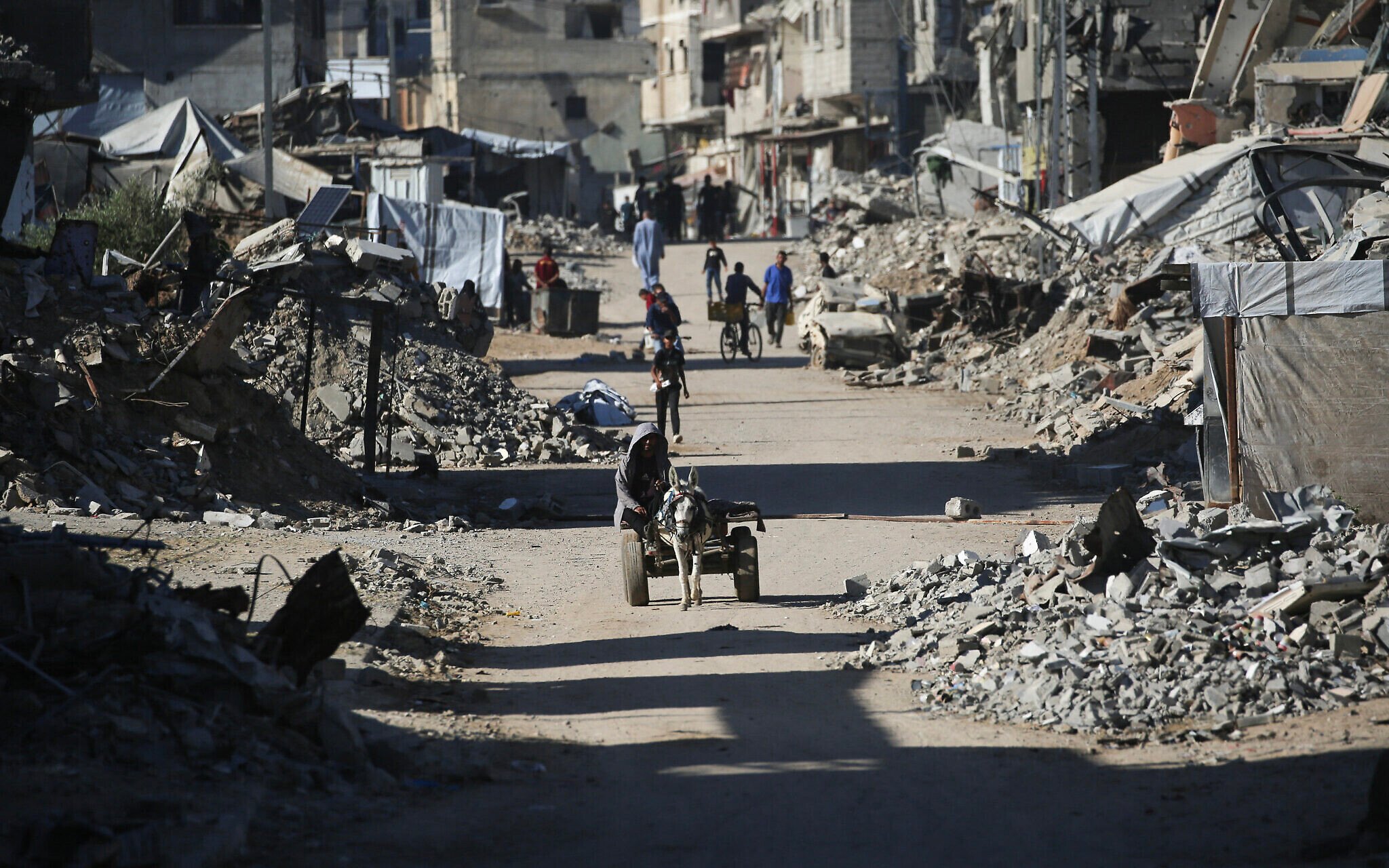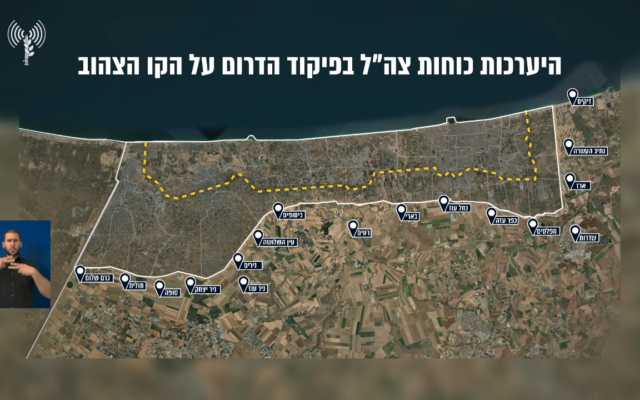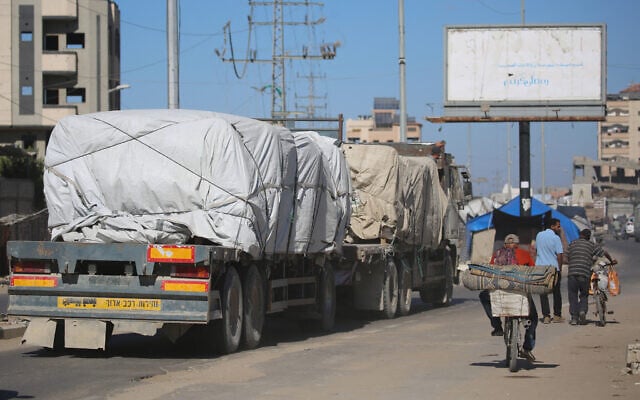


The Israel Defense Forces said Tuesday that it opened fire on Gazans who approached troops in Gaza City and near Khan Younis after crossing the so-called Yellow Line, to which the military withdrew as part of the Gaza ceasefire-hostage deal.
The Hamas-controlled civil defense agency reported five people killed in an Israeli drone strike while trying to return to their homes in Gaza City’s eastern Shejaiya neighborhood, and another person was killed in a separate drone strike on a gathering in the al-Fukhari area east of Khan Younis in southern Gaza.
In both cases, the IDF said, troops “opened fire to remove the threat,” in accordance with the ceasefire deal.
In al-Fukhari, the IDF said, suspects approached the troops in a manner that posed an immediate threat and attempted to reach a Hamas weapon depot that had been destroyed by the military. In Gaza City, according to the military, troops opened fire on suspects who refused a call to disperse. The military also denied reports that an army encampment in the area was infiltrated by the suspects or other gunmen.
“The IDF calls on Gaza residents to follow its instructions and not to approach the troops deployed in the area,” said the military.
Hamas spokesman Hazem Qassem said the Israeli fire represented “a violation of the ceasefire agreement,” and, referring to Israel, called on “the various parties to monitor the occupation’s behavior and prevent it from shirking its commitments to mediators on ending the war.”
Meanwhile, Israel said Tuesday that it would not reopen the Rafah border crossing between Gaza and Egypt on Wednesday, despite being required to do so under the agreement, after Hamas on Monday only returned several of the slain captives.
Israel will also reduce the amount of aid flowing into Gaza as part of the sanctions against the terror group.
The moves followed Israeli defense officials’ assessments that Hamas has not made significant efforts to return the remaining 24 bodies of hostages.
The United Nations and the International Committee of the Red Cross called for all crossings into Gaza to be opened to allow desperately needed aid into the war-torn territory.
“That’s what humanitarians, including ICRC, have been calling for in the last hours, is making sure that, because of the huge needs, all entry points can be open,” Red Cross spokesman Christian Cardon told reporters in Geneva. The UN humanitarian agency’s spokesman Jens Laerke added: “We need all of them open.”
Also Tuesday, Turkish President Recep Tayyip Erdogan said that he would seek the support of Gulf states, the United States and Europe for the reconstruction of Gaza under the ceasefire deal, and he believes project financing will be provided swiftly.
Speaking to reporters on a return flight from a global summit on Gaza’s future held in Egypt’s Sharm el-Sheikh, Erdogan also said Western countries’ decisions to recognize Palestinian statehood should be seen as building blocks of a two-state solution, according to a transcript shared by his office. Israel has slammed the recent wave of Palestinian statehood recognition as rewarding the October 7, 2023, Hamas-led massacre that started the war.
Hamas on Monday released the last 20 living hostages, as it was required to do within 72 hours of Israel’s Friday withdrawal to the Yellow Line. The terror group also returned the remains of four slain hostages, with 24 bodies of slain hostages still in Gaza.
Under the ceasefire agreement, Hamas was required to return all the bodies in its or other terror groups’ possession, and share any information it has on other slain hostages, within the same 72-hour timeframe. The terror group has said it would be difficult to return all the dead hostages at that time due to the field conditions in Gaza.
The 24 slain hostages include a soldier killed in the 2014 Gaza war, and 23 civilians and soldiers abducted during the Hamas onslaught of October 7.



